#tverskoy
Explore tagged Tumblr posts
Text




Anna Karenina (2012)
“You can’t ask why about love”
#2012#gif#film#movie#literature#Anna Karenina#Leo Tolstoy#Count Lev Nikolayevich Tolstoy#Keira Knightley#Anna Arkadyevna Karenina#Ruth Wilson#Princess Elizaveta Tverskaya#Princess Betsy Tverskoy#Aaron Taylor-Johnson#Count Alexei Kirillovich Vronsky#Vronsky#Michelle Dockery#Princess Myagkaya#Emerald Fennell#Princess Merkalova#Alicia Vikander#Princess Ekaterina Alexandrovna Shcherbatskaya#Kitty#Jude Law#Alexei Alexandrovich Karenin#Alexei Karenin#Saint Petersburg#Moscow#Imperial Russia
25 notes
·
View notes
Text














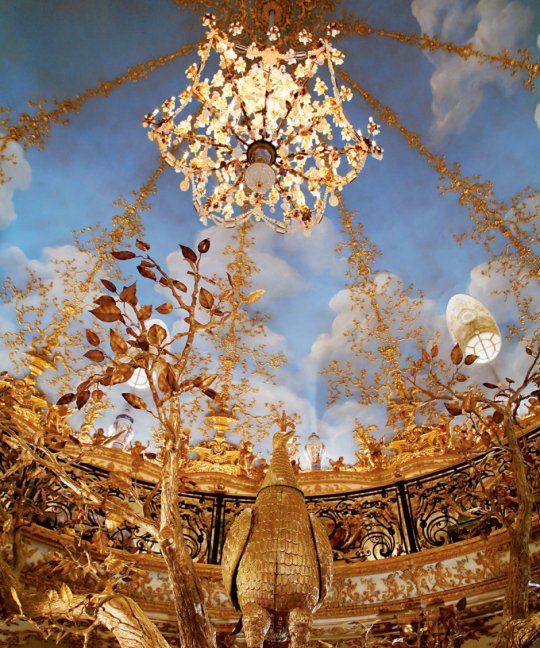

Переносящий в дворцовую эпоху Золотой зал ресторана Турандот.
В старинном московском особняке на Тверском бульваре, вернее, даже дворце, в стиле позднего барокко и «шинуазри», находится ресторан «Турандот», похожий на драгоценную шкатулку.В сердце ресторана Турандот расположена ротонда, занимающая два этажа, в которую выходят двери банкетных залов. Завитки позолоченной лепнины на куполе в виде небосвода с белыми облаками образуют орнаментальные тяги, сходящиеся к центру, из которого спускается люстра à la Louis XIV из золоченого железа с подвесками из горного хрусталя, кварца и аметистов с Урала, из Бразилии и Мадагаскара, изготовленная в Петербурге. Здесь все умело украшено расписными китайскими вазами, статуэтками обезьян и фресками с их же участием в пасторальном стиле.
The Golden Hall of the Turandot restaurant takes you back to the palace era.
In an old Moscow mansion on Tverskoy Boulevard, or rather a palace, in the late Baroque and Chinoiserie style, there is the Turandot restaurant, which resembles a precious box. In the heart of the Turandot restaurant there is a rotunda, occupying two floors, into which the doors of the banquet halls open. The curls of gilded stucco on the dome in the form of a firmament with white clouds form ornamental rods converging to the center, from which descends a chandelier à la Louis XIV made of gilded iron with pendants of rock crystal, quartz and amethysts from the Urals, Brazil and Madagascar, made in St. Petersburg. Here everything is skillfully decorated with painted Chinese vases, monkey figurines and frescoes with their participation in a pastoral style.
Источник:https://1portal.ru/ploshchadki/restoran-turandot, /pro-dachnikov.com/dom/68277-turandot-ptichij-zal-79-foto.html, /zveruska.livejournal.com/202444.html, /havio.club/25384-turandot-novogodnjaja-noch.html.
#Россия#Москва#история#архитектура#особняк#ресторан#Турандот#барокко#шинуазри#лепнина#Золотой зал#фотография#Russia#Moscow#mansion#history#restaurant#Turandot#Golden Hall#baroque#chinoiserie#stucco
103 notes
·
View notes
Text
It is unacceptable to judge art. An artistic statement can be interpreted, treated in different ways, even if it is expressed as simply and clearly as possible. There can always be those who will perceive it incorrectly. And if someone is inclined to be offended, then he can be offended, well, for no reason at all.
I did not set the goal of offending anyone with my poem. Perhaps someone had the goal of being offended, so that a person with an opinion and views different from theirs would be undeservedly punished. But just as for art, it is unacceptable to judge for an opinion, even if it is expressed publicly. Although in modern Russia this, alas, is practiced, so I fear, with all due respect to you, that the verdict will be guilty, although I am completely innocent. I would like to draw your attention to the fact that the video evidence provided shows that I did not call for not taking subpoenas, not signing, etc. I would also like to point out that everything said and read during the readings is solely the responsibility of the speaker or reader, because there is no general line at the Mayakovsky Readings, the readings do not have organizers - a city tradition dating back to the middle of the last century, they are simply not needed. Anyone can come out and say anything, anything that comes to mind. In my memory, it has always been like this. Moreover, with regard to Article 280, Note 4, I would like to draw your attention to the fact that the article is completely new: at the time of our arrest it had existed for no more than three months and there was no practice under it. As articles appeared prohibiting certain statements, I always adjusted my rhetoric. An article appeared for "discrediting" [the army] and the first person convicted for saying "No to war", and I stopped saying "No to war". Although I still don't understand what discrediting has to do with it. Article 207 appeared, an article about "fakes" [about the army], and I stopped sharing any information not confirmed by the Russian Ministry of Defense. If I knew that some things, even if said to me, said publicly, could lead to jail, I kept silent... Well, I didn't keep silent. Knowing, moreover, how the prosecution throws around definitions like "organized group", I might have moved away from the person saying such things. I would have been tormented by remorse, suffered from anxiety attacks, but I would have kept silent. I am not a hero, and going to prison for my beliefs was never part of my plans. I am a poet and not a very emotionally balanced person, and I have a diagnosis - "generalized anxiety disorder" or, as they called it at the Serbsky Institute, "mixed personality disorder", which, however, does not prevent me from being judged. I would like to ask you, if you cannot for any reason issue an acquittal - although I emphasize that I am absolutely innocent - to limit yourself to a suspended sentence. I fear that my health, neither physical nor mental, will not withstand a long prison sentence. And the possibility of being thrown behind bars again, the possibility of being forced to part with my family and friends will be a sufficient deterrent to any statements on any sensitive topics. My convictions will not change, just as they did not change under torture, just as they would not change in the case of a real term, they would not change even under the threat of death - it is simply impossible. It does not work that way. But I guarantee you that I will not express them publicly anymore. Your Honor, let me go home.
December 27, 2023, Tverskoy District Court, Moscow, Russia.
2 notes
·
View notes
Text


Tverskoy, October 2021
#photographers on tumblr#original photography#lensblr#moscow#photographer#photography#canon#Autumn ambers#photo blog#photo of the day#cityscape#urban#city streets#streets#buildings
28 notes
·
View notes
Text
Mùa đông xứ sở Bạch Dương
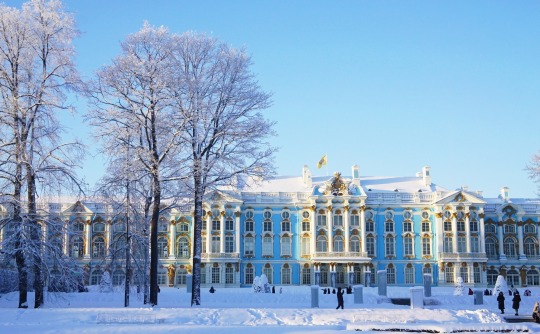
Catherine palace đẹp quên sầu
Nhân dịp Nga mới mở evisa cho bà con, giá thì rẻ nên tính làm thử test nhân phẩm thế nào ko đỗ thì thôi cúng các bác 1.2 củ vậy mà dè đâu 4 hôm sau trả kết quả cái rẹt thế nên là lại phải sắp xếp đi ngó nghiêng nước Nga Xô Viết vĩ đại mà các bác nhà mình tán dương suốt ngày không ngừng nghỉ xem nó như thế nào. Mỗi tội evisa cho hơi ki bo có mỗi 16 ngày thời hạn hiệu lực 2 tháng mà giờ vẫn đang là mùa đông, vốn ban đầu tính bay qua Mông Cổ đi chuyến tàu Trans Siberia từ Ulaanbataar tới Irktutsk chơi hồ Baikal rồi đi tàu tiếp qua miền Viễn Đông xong bay về từ Vladivostok cho mùa nào thức ấy. Nhưng vì cuối tháng 12 mạn hồ Baikal mới bắt đầu đóng băng thấy cũng chưa đẹp hẳn nên cuối cùng lại chuyển đi mỗi mạn phía Tây lượn 2 thành phố lớn Moscow, Saint Petersburg và Murmansk vậy thôi để dành miền Đông cho dịp khác.

Hàng ghế vô danh ở làng Pushkin
Trước khi đi cứ nghe mọi người bảo Nga, đặc biệt là mấy thành phố lớn là phải để dành mùa hè mùa thu đi mới đã chứ mùa đông ngày ngắn đêm vừa dài vừa u ám lạnh lẽo khí hậu chán đời thế chơi bơi gì. Năm nay lại còn là năm siêu rét ở châu Âu. Nhưng mà đi rồi mới thấy nước Nga mùa đông quả là đẹp thần kỳ, châu Âu mình cũng đã đi nhiều ban đầu nghĩ đến Nga cũng ko kỳ vọng ồ à gì lắm và có thể là nếu đi mùa thu mùa hè chắc cũng cảm thấy thế thật.

Murmansk
Nhưng chính bởi vì đi mùa đông lại đúng dịp cuối năm thành phố trang hoàng giáng sinh (Nga theo chính thống giáo nên giáng sinh là vào ngày 7/1) lại thêm ko khí cuối năm giao thừa nhộn nhịp, tuyết thì rơi trắng trời trắng đất, mới học được bảng chữ cái tiếng Nga nên đi ra ngoài đường đánh vần tên đường phố nhà hàng thôi cũng thấy đủ dzui rồi. Vậy nên là với đất nước nổi tiếng về mùa đông này mình cũng rất recommend đi thăm vào cả mùa đông (cũng đỡ chen chúc hơn bt 1 tý nhưng mà vào 1 tuần tết Dương dân Nga đổ ra đường chơi nhiều nên thực ra vẫn hơi bị đông :q. Lỡ mà ko mua được vé online thì xếp hàng mua vé vào bảo tàng Hermitage giữa trời -25 độ C đúng là 1 loại thử thách cực hạn)
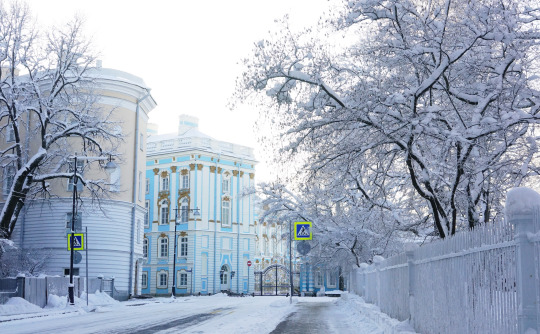
Hạng mục tham quan chủ yếu ở thành phố lớn như Moscow và Saint Petersburg nói chung vẫn là combo thường thấy quảng trường, cung điện, nhà thờ, cái nào cũng to oạch. Nhà thờ thì các kiểu củ hành, lúc tuyết rơi xuống nhìn thật là cổ tích. 2 năm nay do có oánh nhau nên giao thừa ở quảng trường Đỏ ko còn bắn pháo hoa nữa. Đến tầm 8h,9h tối giao thừa mấy anh lính a nào a nấy to như con gấu lăm lăm khẩu súng lùa hết khách ra khỏi hội chợ giáng sinh ngay ở quảng trường đỏ, sơ tán xong rồi vây rào cho ko còn một ai vào bên trong nữa chắc để bác Tsar đại đế trong điện Kremlin ăn giao thừa 1 mình cho yên ả.
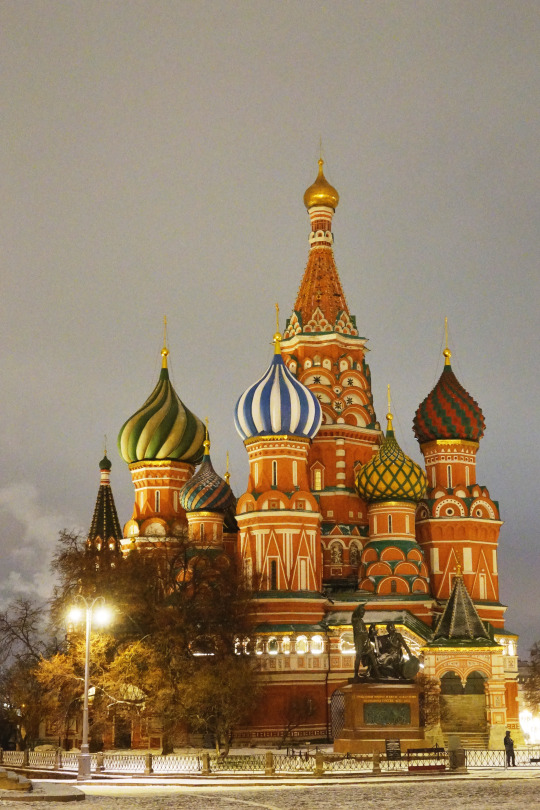
Nhà thờ Vasily 10 củ hành
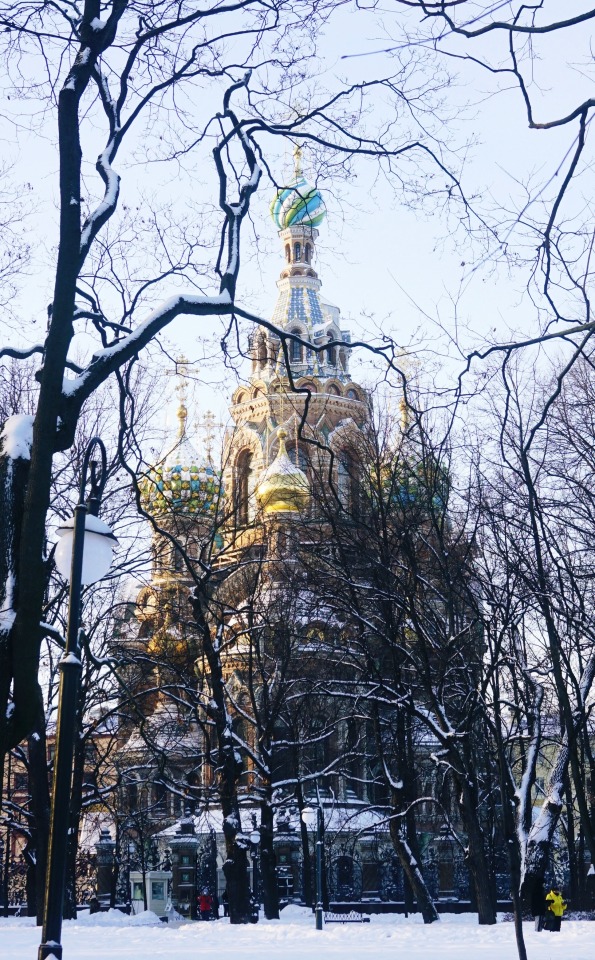
Nhà thờ máu đổ (Spilled Blood) ở St Ptg hiện đang quây rào trùng tu 1 củ hành
Ở Moscow thì khu Kremlin và quảng trường đỏ chắc là hấp dẫn nhất rồi (lăng Lenin (bé xíu) chỉ mở cửa đến 13h chiều nên ai muốn vào thăm cụ thì phải để ý chút).

Bên trong Kremlin
Đối diện có cái GUM shopping mall, thời Xô viết tem phiếu cũng là cái bách hoá tổng hợp nổi tiếng nhất toàn quốc, ko thiếu đồ tiêu dùng nên là người xếp hàng mua đồ dài dằng dặc (bên trong có bán kem theo công thức hồi Xô viết cũ giữ đến tận giờ có hôm người người vẫn xép hàng dài dằng dặc). Cuối thời Xô viết Gum được tư nhân hoá nên giờ toàn bán hàng hiệu giá cũng hơi thụt lưỡi nhưng mall bên trong trang hoàng rất là đẹp, dưới tầng 1 có khu bán thực phẩm hịn: rượu, chè, caviar, đồ hộp, đồ ăn bánh trái chocolate cái gì cũng có cái gì cũng đẹp nhìn cái gì cũng muốn mua :q. Ngoài ra có thể lên lầu 3 ăn có khu food court theo kiểu style Xô Viết cũ cầm khay xếp hàng chọn món xong mới ra quầy thu ngân tính tiền. Đồ ăn hơi nguội tý nhưng ăn cũng ổn, giá cũng ok. Dưới tầng 1 có chi nhánh của cafe Pushkin, tiệm này rất chi là popular nhưng cửa hàng chính của Cafe Pushkin cách quảng trường Đỏ ko xa ở phố Tverskoy là nằm trong toà nhà quý tộc cổ từ thế kỷ 19 đến giờ gần như giữ nguyên phong cách cũ nên CỰC kỳ đẹppp. Cũng 1 sao Michelin nên đồ ăn cũng oke, nếu đi ngày thường thì lunch có thể ko cần book vẫn có khả năng vào được nhưng nếu cuối tuần hoặc dịp lễ tết thì buộc phải booking trước (cần sdt Nga).

Đồng phục trong quán rất là kute. Thái độ phục vụ thì hơi lạnh lùng tý nhưng được cái là tiếng anh ai cũng tốt.
Từ quảng trường đỏ có thể đi bộ ra khu downtown quanh mạn Nhà hát Bolshoi. 1 trong những việc mà mình cực kỳ recommend khi đi Nga là đi xem ballet, hoặc là ở Bolshoi ở Moscow hoặc ở Mariinsky Theatre ở Saint Ptg. Bolshoi thì cực hot nên vé cận ngày bao giờ cũng sold out cần phải đặt mua sớm trước, Mariinsky thì thấy dễ th�� hơn tuỳ suất tuỳ vở dịp tết ngày trước mua vé cho hôm sau cũng vẫn còn. Ấn tượng chung của mình là người Nga rất mê thưởng lãm nghệ thuật, vé opera, ballet so với mức sống bình quân ko hề rẻ nhưng hôm nào cũng thấy soldout, người xem nườm nượp. Chất lượng production và âm nhạc thì vô cùng xuất sắc.

Đi dịp giáng sinh nên là vở The Nutcracker được trình diễn nhiều liên tục hàng ngay
… (chưa biết bao h tiếp)
5 notes
·
View notes
Text
He couldn't even read the name of the street he lived on. He wrote it down and added a Latin transcription next to it. He understood already that улица meant street, but wasn't quite sure what Поварская meant. Площадь was a square, that one he got as well. He learned mostly the terms for such places, simply through common sense and a pattern that he saw - street, boulevard, bridge, square, park.. He took a lot of walks in the first few days, and often stared up at the signs of the streets he couldn't understand. He brought a dictionary next time, and through a painstakingly slow process, managed to read them. Tverskoy boulevard, Delegatsky park, Mayakovskaya metro station... He picked up the Russian version of the letters S, P, and R simply through learning how to write Spartak; other letters were much more difficult to recognize - and even when he managed to read the word, he couldn't understand it.
Unai in Russia is a tragic comedy.
5 notes
·
View notes
Text
Yandex robot kuryeleri Moskova'da hizmete başlıyor

Yandex robot kuryeleri, siparişleri iki kilometreye kadar mesafeye teslim edecek şekilde tasarlandı. Yandex Food ve Yandex Shop kullanıcıları artık kafe, restoran ve marketlerden yemeklerin yanı sıra otomatlardan hazır yiyecekleri Yandex robot kuryesi ile teslim alabilecekler. Bu teslimat yöntemi Moskova'nın yedi yeni bölgesinde kullanıma sunuldu: Yandex Food ve Yandex Mağazalarından robot teslimatı Tverskoy bölgesi, Ramenki ve Havaalanında ortaya çıktı. Yandex Shop'tan robotlar ayrıca Presnensky, Lomonosovsky bölgeleri, Troparevo-Nikulino ve Fili-Davydkovo'da da teslimat yapabilecek. Ücretsiz robot boştaysa, sipariş verirken firmalar bu teslimat yöntemini sunacak. Yandex Food'da hizmet ücretsiz olacak. Müşteriler teslimat robotunun rotasını Yandex uygulamaları üzerinden takip edebilecek. Siparişinizi teslim almak için uygulamadaki “Kapağı Aç” butonuna basmanız ve siparişleri robottan çıkarmanız gerekmektedir. Basın servisi şunları açıkladı: Daha önce robot teslimatı Moskova'da yalnızca Khamovniki ve Lesnaya Caddesi'nde mevcuttu. Artık bu teslimat yöntemi 200'den fazla mağaza ve restoran tarafından kullanılıyor: örneğin, "Vkusno - period", "Azbuka Vkusa", "Teremok", "Shokoladnitsa", "Burger King" ve "Anderson". Read the full article
0 notes
Text

Alexei Navalny at Tverskoi district court in Moscow, in 2011. Photograph: REUTERS
1 note
·
View note
Text
A high-level Russian court has issued an arrest warrant for former senior inspector Dmitry Gubin of Moscow.What Happened: Gubin allegedly received 2,718 Bitcoin BTC/USD ($74.5 million) in bribes.There have been suspicions that he has evaded the country, hence the issuance of an arrest warrant.Benzinga's Future of Digital AssetsA report from “The Moscow Court” telegram channel, as reported by CoinGape, indicated severe charges under Part 6 of Article 290 of the Criminal Code of the Russian Federation which relates to receiving large-scale bribes. He is also charged under Part 1 of Article 286 referring to exceeding official powers. Background: Last month, Gubin’s subordinate Kristina Lyakhovenko was arrested in a similar bribery case.Separately, Marat Tambiev — former head of the investigative department of the Tverskoy District Committee — remains in pre-trial detention since January for allegedly extorting Bitcoin from hackers for their release who were arrested.After Tambiev arrested two members of the Infraud Organization, the notorious Russian cybercriminal group, hackers allegedly paid a bribe of 1,032 BTC to the officer so that he would not confiscate all their crypto.In July, the Moscow court seized 1,032.1 BTC from Tambiev, holding it in state income.His laptop led to the finding of access codes for two cryptocurrency accounts. Lyakhovenko and Gubin are believed to have acquired the remaining BTC. The investigation is ongoing, and the crimes have not yet been established in a court of law.Investigations believe that the suspects formed a criminal syndicate to receive bribes from individuals connected to various criminal cases.CoinDesk reported that Crystal Blockchain located the wallets that contained the bribe based on fragments of addresses listed in the leaked court documents. Additionally, previously unreported wallets belonging to Infraud were located by Crystal which is closely connected with the darknet marketplaces UniCC and LuxSocks.Russia Developments: Binance recently announced that it would sell its Russia business to the newly launched exchange CommEX.The company stated that it has not retained any option to buy back shares in the business.International sanctions are imposed on Russia to exclude it from the U.S. dollar-powered global payment infrastructure due to the ongoing war in Ukraine.As a result, Russia is keen on mining crypto for carrying out export-import deals. It is also working on a bill that will create a national agency to license and supervise cryptocurrency platforms operating in Russia.
0 notes
Text
Tverskaya Boulevard
The book “Тверской бульвар” by Lev Kolodny is a detailed exploration of one of Moscow’s ten boulevards, Tverskoy Boulevard. The book is written in Russian, and the author is a well-known journalist and writer who has authored many works about Moscow. The book delves into the history and significance of Tverskoy Boulevard, which appeared on Moscow’s plans relatively recently, at the turn of the…

View On WordPress
0 notes
Text
Mosca, incendio al Cafè Pushkin: un centinaio le persone evacuate
Rogo al Café Pushkin, uno dei più ricercati ristoranti della capitale russa, sede di pranzi e cene degli oligarchi russi vicini al presidente Putin. Decine di foto e video testimonianze su Twitter mostrano le fiamme innalzarsi dal tetto dell’elegante palazzo in stile barocco sul Tverskoy Boulevard dove si trova anche un altro ristorante molto famoso, il “Turandot”. Al momento dell’incendio,…
View On WordPress
0 notes
Text
Russian official detained for accepting record bribe of $28M BTC
According to a local news reports, Russian official Marat Tambiev is accused of accepting Bitcoin (BTC) worth $28 million as a bribe from the hacker group he was investigating. This is the largest recorded amount received in a single bribery instance in Russia, as per the report. Tambiev served as the head of the investigative department of the committee for the Tverskoy district of Moscow until…

View On WordPress
0 notes
Text


Tverskoy, October 2021
#photographers on tumblr#original photography#digital portrait#moscow#urban#urban photography#cityscape#city photography#lensblr#photo blog#photo of the day#streets#street photography#Autumn ambers
16 notes
·
View notes
Photo

Tverskoy Dom -we have puppies! www.tverskoydom.ru #totalrottweilermagazine #total_rottweiler_magazine #tverskoydomkennel #tverskoydom #tverskoy-dom-rottweilers-kennel #rottweilerland #rottweilerofinstagram #rottweileroftheday #rottweilersofig #rottweilersrule #rottweilerpuppy #puppiesofinstagram #puppies https://www.instagram.com/p/B09QrOJHNRX/?igshid=mvwb6jmr2wtn
#totalrottweilermagazine#total_rottweiler_magazine#tverskoydomkennel#tverskoydom#tverskoy#rottweilerland#rottweilerofinstagram#rottweileroftheday#rottweilersofig#rottweilersrule#rottweilerpuppy#puppiesofinstagram#puppies
0 notes
Photo

It looks like a museum, but it's probably the most lavish restaurant in Russia! ❤️🇷🇺 . . . . #Turandot #Tverskoy #HiddenGem #RussianWeek #MoscowCity #MoscowLife #BeautifulDestinations #TravelInStyle #TravelDiaries #MoscowCity #Moscow #Russia #RussianBeauty #Турандот #Москва #мск #Россия #РусскаяКультура #ресторан (at Турандот / Turandot) https://www.instagram.com/p/BzDi-Nejeio/?igshid=1am7fe161fhlz
#turandot#tverskoy#hiddengem#russianweek#moscowcity#moscowlife#beautifuldestinations#travelinstyle#traveldiaries#moscow#russia#russianbeauty#турандот#москва#мск#россия#русскаякультура#ресторан
1 note
·
View note
Photo

What happened to Spring? That was a short appearance. Come back! Now! #moscow #moskau #tverskoy #tverskoydistrict (at Управа Тверского района) https://www.instagram.com/p/Bu6hUiQnKhC/?utm_source=ig_tumblr_share&igshid=xjltvrx0q2vo
0 notes